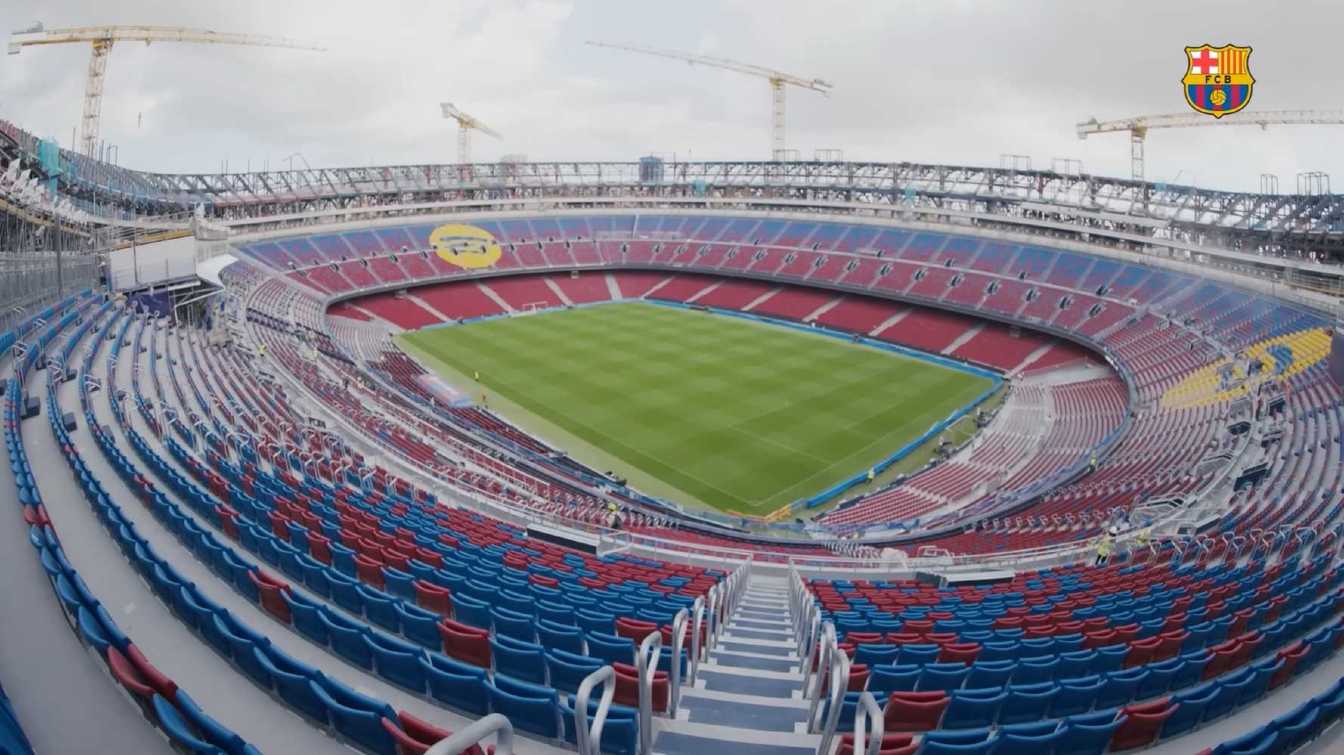Spain: Did Barcelona hire the worst-rated contractor? Fight to reopen in 2025
source: StadiumDB.com; author: Paulina Skóra
 Limak won the contract to rebuild Spotify Camp Nou despite receiving the lowest technical score, with the schedule becoming the decisive factor. FC Barcelona defends the choice, but the Espai Barça project now faces serious delays and key construction stages remain unfinished.
Limak won the contract to rebuild Spotify Camp Nou despite receiving the lowest technical score, with the schedule becoming the decisive factor. FC Barcelona defends the choice, but the Espai Barça project now faces serious delays and key construction stages remain unfinished.
Advertisement
Lowest-rated bidder wins: timing proves decisive
At the end of 2022, the Espai Barça technical team — made up of engineers, architects, planners and financial experts, assisted by the external engineering firm GPO — gave Limak a score below 50 out of 100, the lowest among all bidders. The report stated that Limak had failed to convincingly justify its ambitious construction schedule, which was faster than that of its competitors, and that the company’s responses were unclear, imprecise and insufficient. Moreover, to start the works, Limak required around €200 million in advance, while other firms only needed about €12 million. Despite this, the Turkish company ended up winning the contract, beating consortia led by FCC and Ferrovial.
The decisive factor was the construction timetable. Two days after the initial report, the Espai Barça Technical Office, headed by Lluís Moyà and Joan Sentelles, produced a new assessment giving Limak 74 points, ahead of Ferrovial (58) and FCC (40). The key difference of 16 points was linked to the guarantees and justification of deadlines
category.
Limak’s proposal projected that Barça would spend only one season at the Estadi Olímpic Lluís Companys, return to Camp Nou in November 2024 with a capacity of 60,000, and finish the full redevelopment — including the new roof — by July 2026. Ferrovial presented a similar timeline but with around €200 million in additional costs.
Tweet Obras Camp Nou https://x.com/obras_camp_nou/status/1977348543200252261
— Obras Camp Nou (@obras_camp_nou) June 3, 2025
Not the cheapest option
Financially, Limak’s offer wasn’t the cheapest, but it was considered the most efficient in terms of timing and risk. Their proposal of €960 million came below FCC-Comsa’s €1.143 billion and Ferrovial’s €1.363 billion. Following the final report, Barça’s board of directors approved the selection, but not unanimously: Jordi Llauradó, the board member overseeing Espai Barça, abstained from the vote and resigned two days later. Since then, five more key team members have left the project.
Club stands by its decision
Joan Sentelles, the chief coordinator of the Espai Barça project, responded to the criticism in an interview with Què T’hi Jugues, stressing that the contractor selection process was closely monitored and analysed by many people and institutions. He argued that different reports and viewpoints had been considered, and that the final assessment was made by the project’s technical team. Sentelles also praised Limak’s precision and professionalism, highlighting its organisational capacity and flexibility in adapting to project changes. He added that the club could seek financial compensation if delays were proven to be the company’s fault.
His comments echoed those of President Joan Laporta, who in February 2023 insisted the tender process was technically exemplary and transparent. Laporta explained that the selection was overseen by compliance officers, legal departments and auditors. According to him, Limak was the only bidder to commit to a 16-month stay at Montjuïc, returning to Camp Nou before December 2024 and completing the project by July 2026. Laporta also pointed out that each additional season away from the club’s home ground would mean losses of around €93 million.
Delays mount: phase 1B still pending
More than two years later, none of those deadlines have been met. FC Barcelona will not return to Spotify Camp Nou until at least November, as confirmed by the scheduling of matches against Girona and Olympiacos at the Estadi Olímpic. The club still lacks the first occupancy licence for phase 1A, which covers the main stand and the Gol Sud — roughly 27,000 seats. The board prefers to wait for phase 1B, which includes the lateral stand and would raise capacity to 45,000, making the return economically viable.
If everything goes according to plan, the licence could be issued later this week, with phase 1B expected to be completed by mid-November. Once the team returns to Camp Nou, the club insists, they will not be leaving again.
Advertisement
 StadiumDB
StadiumDB